
Friends, the 2024 Listen class is now open for early registration. Class begins Tuesday, July 16th and runs through Tuesday, September 3rd with webinars on Tuesdays at 2 pm central. Tuition is two monthly payments of $200 USD, plus sales tax if you live in Texas.

If we are quiet and listen and feel how things move, perhaps we will be wise enough to put our hands on what waits to be born, and bless it with kindness and care." - Wayne Muller
When you want to break free from painful habits
When we struggle with an addiction, compulsion, or behavior that causes suffering, we often have a strong desire to 'break free.' We have a desire to heal - to care for our needs in healthier ways.
This often leads to a well intentioned quest to learn new skills, reduce stress or learn new coping strategies to soothe our overwhelm.
So you might begin a yoga practice, learn meditation, or study self compassion. You might become more self aware – or you may already be someone who's inclined to self awareness.
But when the behaviors continue, and the self awareness doesn't lead to the changes you're hoping for, you may feel discouraged and frustrated. You may notice persistent thoughts like, “This is stupid!” or “This will never work for me.”
You may feel envious of those who seem to easily make positive changes in their lives. You may feel like you're doomed to suffer endlessly.
You may feel so frustrated: why do these patterns with food stubbornly persist when I'm working and trying so hard -when I have such good intentions?
What if something else is needed?
There's a time and place for learning new skills. But when we learn new skills, what often happens is that we bump into places that resist these new ways of relating to ourselves. Places in us may get really scared, and protest.
We may struggle in making changes, or find them impossible to maintain. Or we may find that these new skills feel insufficient in some way, and leave us feeling really lonely or alone.
This is when it helps to come closer, to lean in, become curious and listen: What if something else is going on?
And what if something else is needed ?
Your relationship with nourishment
We all have a relationship with nourishment, with the ways we take in and give ourselves care.
The ways we nourish ourselves are shaped by so many things: by the ways we're nourished as young ones, by the ways those around us nourish themselves, by the ways our cultures and communities approach nourishment, by the wounds we accrue and challenges we experience, by the moments of connection we experience, and more.
These all become a part of us and shape our own relationship to nourishment.
For so many of us, our relationship with nourishment – and food in particular – is complex, full of mixed feelings and needs. We may long for care and nourishment – physically, spiritually, emotionally – and yet also struggle to receive it or to take it in.We may try to keep our needs as small as possible. We may feel embarrassed about our inner hungers, our need for care.
We may spiritualize our needs for nourishment, trying to minimize our genuine human needs.
Our relationship with nourishment may bring up strong feelings like fear, anxiety, anger, panic, grief, or shame. There are reasons for these reactions, and they're worthy of dignity and respect.
Regardless of the personal wounds you may care for, almost all of us have places in us that struggle with nourishment as a consequence of living in modern cultures that devalue care and connection and emphasize achievement, materialism, individualism, status, and success.
So taking in, receiving and offering ourselves nourishment may not come naturally to us, or easily! We can overdo and underdo. We can crave and cling to food or other places of warmth. We can want care and push it away.
We can long for things to feel different – and yet wonder if we'll ever have a relationship with nourishment that's filled with empathy, gentleness, understanding, or kindness.

Softening judgment for the ways we nourish ourselves
When we feel overwhelmed and care for our needs in messy ways, it's easy to judge ourselves for overeating. These thoughts mirror the cultural messages that we receive – all the ways we 'should be doing better.'
These judgments make it really hard to listen to ourselves and to be in touch with what we're feeling or needing – or even noticing that something is really, really hard for us.
So when we experience a hunger for warmth, food, connection, empathy, and more, and we care for these needs with food or sugar, we can feel guilty, confused, frustrated, disgusted or ashamed.
This may feel even more true if we're a healer ourselves, or if we've been using contemplative or psychological tools and practices and 'know' all the right tools.
This can put us into a mindset of fixing – even if we use gentle means like self compassion – to try to create 'better' coping strategies.
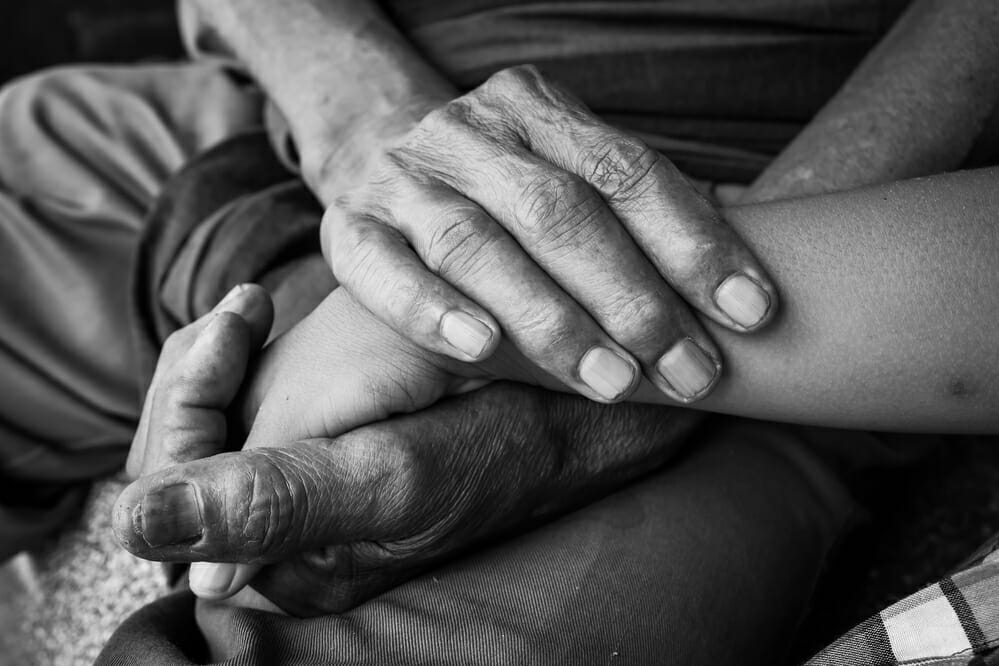
Healing is a relationship
Rather than fixing our 'bad habits' – or even learning helpful skills – we often need something else first: to come into a more gentle and compassionate relationship with nourishment itself.
I find it helpful to think of healing our relationship with nourishment as a deepening – where, bit by bit, moment by moment, we create a living, embodied relationship with ourselves.
This is a gentle, compassionate process, and for many of us, a lifelong one – not life long in the sense of always being painful, but a process that unfolds as all relationships do: a changing river that ebbs and flows over time.
This is one of the reasons why healing happens incrementally. We need safety – a warm loving presence – to build a curious, alive, and warm relationship with nourishment.
What attempts to 'fix ourselves' or to learn new skills are often missing are safety and relationship – they can feel like mechanical processes that we're trying to fit or squeeze ourselves into. They often feel disembodied, something we're trying to make ourselves 'do,' a form we're trying to create or 'match' rather than something that arises from within us.
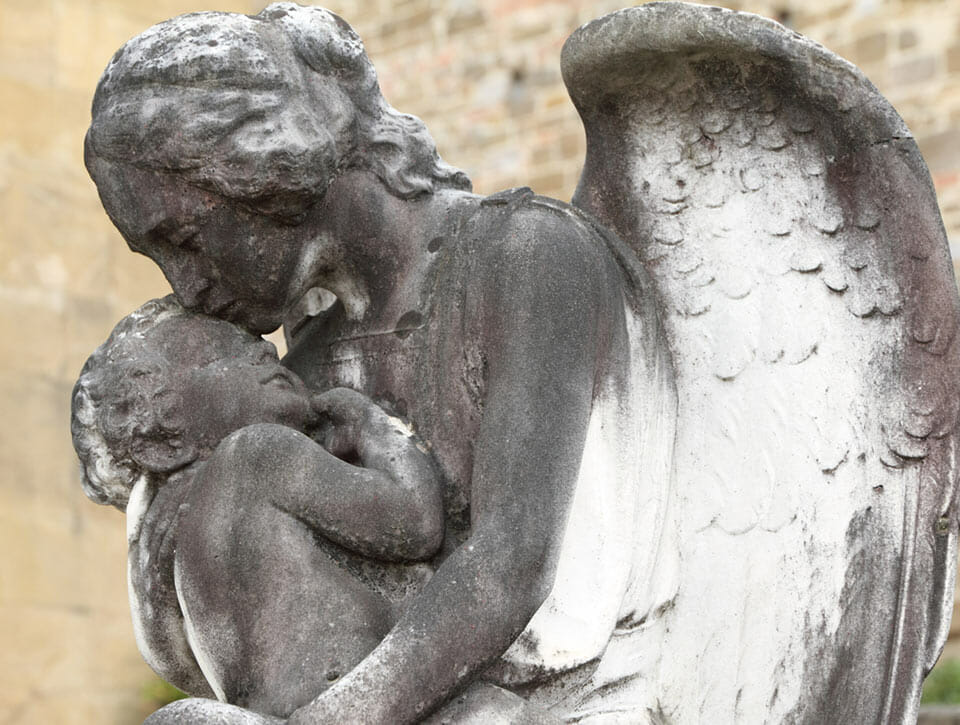
What happens when we slow down and listen
Relationship holds a capacity for healing, a potential for healing at any age. When we slow down and listen, we get to know these places within. We begin to understand the protections that food has served and may continue to serve for us.
We begin to see that we make sense, that there's a life giving, life affirming impulse that lies underneath the surface of our habits.
Often, when we get to know these parts of ourselves better, we feel so much empathy for ourselves. Rather than feeling broken, we begin to see: no wonder! No wonder I overeat at night or overdo and then eat to make up the difference.
We grow to love and support these places that drive our behaviors up on the surface of our daily lives.
As we listen, our relationship with nourishment begins to change. We begin to feel, in our bodies, the tendrils of new pathways – new responses, and new ways of relating to our needs. We feel less polarized and more balanced in our choices.
We expand both our sense of ourselves and how we care for ourselves. There's more freedom in how we respond to cravings, our inner world, and our needs for nourishment.

How Listen can support you
In Listen you'll explore several core areas – we can call them doorways – that nearly everyone faces when healing their relationship with food.
These are often places of challenge, difficulty or tension that arise in our bodies, minds and nervous systems. While these places of stuckness can feel frustrating or alarming, they're doorways - places where we can bring curiosity, warmth and listening to help soften the wounds that lead to painful behaviors with food.
Together we'll explore these areas with playful, creative exercises. There will be lots of time to share your experience and to be heard. You'll receive emotional support from healing meditations. And you'll learn gentle ways to care for this vulnerability - what lies underneath self soothing with food - so you can become an ally for your growth, healing and transformation.
We'll explore these core areas in the class:
- Embracing neediness
- Befriending cravings and the cry for help
- Caring for collapse and powerlessness
- Becoming more comfortable with the ebb and flow of emptiness and satiation
- Leaning into limits and protective love
- Receiving care rather than caretaking
- Softening perfectionism and walking the maze
This is not a nutrition course, nor a course on what or how to eat. Rather, it's a course on listening to the places that need support so you can become an ally for your healing.
Listening attunes us to what's really going on, and what's needed. Through listening we also contact those places of strength within us - those places that hold our inherent wisdom, strength, and aliveness. We feel less broken and more resilient.
When we listen to our bodies and to ourselves, we can begin to rest in the healing process, where we feel less alone, less anxious, and less pressured to 'make it happen.' It's a relief to begin to trust our inherent health.
How the class works
Class begins Tuesday, July 16th and ends Tuesday, September 3rd. Each day you'll listen to the day's audio, on your own. Then you can hop on the online forum and share your aha's, takeaways, and insights.
We'll gather each Tuesday for group webinars where you can ask questions, share your experience, and connect with others. Webinars will have time for Q&A but also time to practice what you're learning.
Webinars are on zoom from 2 to 3:30 pm Central Time. You can join us live or listen to the recordings later. We also have an orientation webinar on Tuesday, July 16th. During this webinar, I'll orient you to the online space, introduce you to listening partners, and set the tone for our time together.
These are the dates for the webinars:
- July 16th
- July 23rd
- July 30th
- August 6th
- August 13th
- August 20th
- August 27th
- and September 3rd
Guided meditations
You'll also receive audio meditations/guided practice to nourish and deepen your healing. These will help you practice what you're learning and offer a place of calm and holding.
You can play these meditations on your phone when you're feeling anxious. Or replay them before bedtime or in the afternoons when cravings arise.

Collage and creative play
As we learn, things come up! When you listen to the course materials, you might notice places inside that feel sad, places that feel angry, places that feel validated, or places that go, "Yes!" to the materials.
So we've built support into the course to care for what arises in you. You'll receive weekly prompts to create simple, healing collages or drawings. You'll gather images that speak to you and draw out your experience.
I've shared a few of my own collages and drawings above and below so you can get an idea of what this might look like. The drawing is a response to what the word 'anxious' brings up for me. The collage below was made to show what rupture and separation feel like in my body.
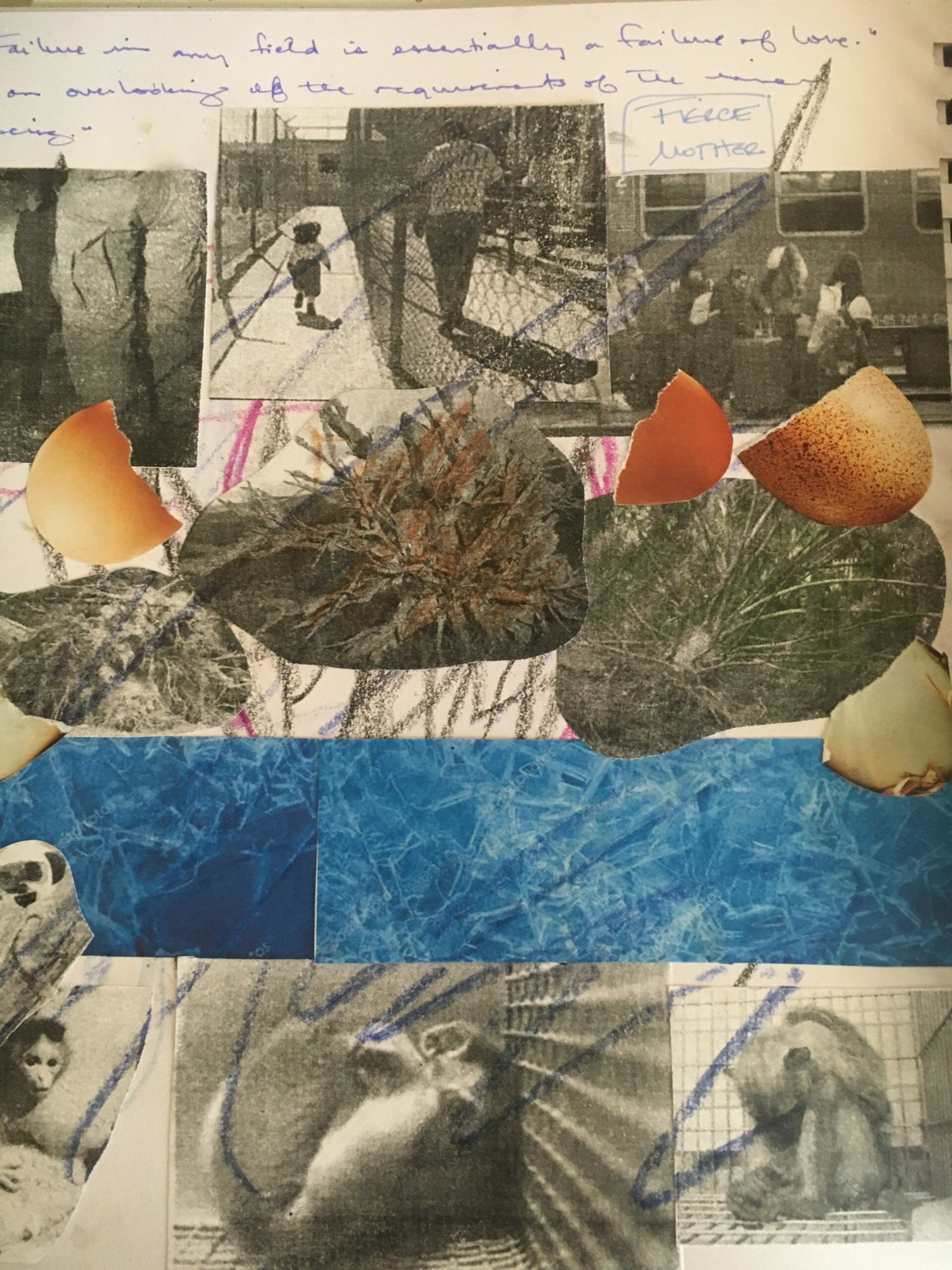
People have said that this is one of their favorite parts of the course!
Kindly note: no artistic skill is needing for this class, just a willingness to play and explore.
Unlimited online access
The class is hosted on our Mighty Network, a private, quiet, calm, ad free space where you can access the course materials without the noise, distraction, and privacy concerns of Facebook.
You'll have unlimited online access to the course materials including after the class ends. And you can download the Mighty Networks app so you can access the course easily on your phone or other device.
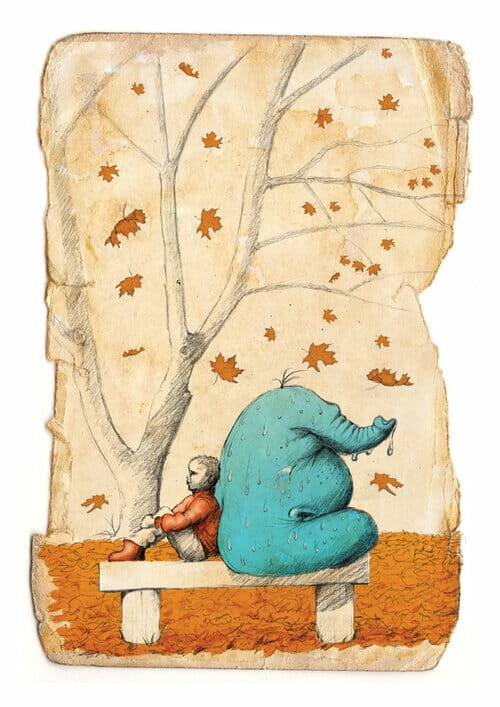
Listening partners
Artwork: Befriending Sadness by Eddy Sara. Used by kind permission of the artist.
In the class you also have the option to pair up with a listening partner. With a listening partner, you each take turns listening to each other as you share what's arising for you.
We highly recommend giving yourself this support!
Being listened to with warmth, care and presence - with no pressure to change or fix - is a healing balm that helps the places within us be supported, allowing us to shift and change the ways we nourish ourselves.
I offer guidelines about listening partners in the course materials so you have support, both in receiving and offering listening, especially if you've never done something like this before.
The course curriculum
Week 1: Embracing neediness
For most of us, the word needy makes us cringe! And yet as interdependent beings, all of us are 'needy' - we all have inborn human needs and longings that long to be satiated.
How do we relate to our needs, and to our hungers for nourishment - for rest, for play, for expression, for connection, for meaning and purpose, for touch, and more? In this module we'll explore our relationship to neediness and nourishment so we can better understand those places in us that may struggle with our needs.
Week 2: Befriending cravings and the cry for help
Ah, the cry for help - how do we respond to feelings of overwhelm and anxiety, to a desire for safety, solace, or support, and to the pull for food?
Often we fear our cravings and these places inside and try to make them quiet or make them go away. In this module, we'll come closer so we can respond to these inner cries for help rather than pushing our needs and feelings away or 'toughing it out.'
Week 3: Caring for collapse and powerlessness
We all have an inborn desire to emerge - to move out and explore, effect change, and to create. Many of us have a lot of confusion around this inner agency.
In this module, we'll connect with this desire to emerge and explore to see where our longings for nourishment and are hungers are directing us, and ways we may feel powerless to move forward, effect change, and take in nourishment.
Week 4: Becoming more comfortable with the ebb and flow of emptiness and satiation
Our need for connection is a biological need that is with us our whole lives. With connection, we move in between the poles of satiation and emptiness - of feeling the hunger for connection, the emptiness, and the fulfillment of connection, and satiation.
These are vulnerable feelings to feel and come into relationship with. In this module, we'll support you in becoming more curious and comfortable with these feelings and how they arise in your body and being.
Week 5: Leaning into limits and protective love
Ah, limits - the form of love that is no, the form of love that is endings, the form of love that is limit - these are often challenging places for us, and places where strong reactions can arise.
In this module, we'll explore how we can feel protected and supported by limits and care for the feelings of resistance, fear and anger that often arise around them.
Week 6: Receiving care rather than caretaking
This is a common place that often arises for people at the end of a day - where a deficit of nourishment arises as a desire for comfort food. When we're in a mode of caring for others and offering care, we often long for a place where our responsible parts can let down and receive warmth, nourishment, care and support.
As many people have said, "It's like food is the only thing that fills this need."
In this module, we'll explore those places in us that long to receive rather than give care, what form of care that may look like, and how this desire to 'let down' and soften overresponsibility arises in our bodies and behaviors.
Week 7: Softening perfectionism and walking the maze
We often want a map of the healing process beforehand - a step by step guide that tells us what to do and that reassures us that we'll be safe and okay.
It's much harder to trust the learning process of trial and error, the necessity of mistakes, and the field of not knowing.
In this module, we'll explore how we can gently rest in the river that holds and guides our healing.
I understand why food can feel so hard
My name is Karly Randolph Pitman, and I'm your guide through Listen. For much of my life, food - especially sugar - was my constant companion, my primary way of caring for myself. I turned to food when I felt overwhelmed by my feelings, experiences, or by life itself. As a sensitive person, this happened a lot! Food was my protector and friend, where I felt safe and understood.
Unraveling my bond with food has been my life's journey, reconnecting me, year by year, with my heart, strength, and wholeness.
I created my first course in 2008, and love weaving the compassionate insights of neuroscience, attachment theory, and spirituality into a place of safety and healing, where the painful places in our being can unfold. The course you hold in your hands has been seeded by my teachers and the beautiful souls who've taken our classes over the years. Their heart woven labor undergirds every piece of nourishment that you'll receive here.
I live in Austin, Texas with my family, our Bailey dog, a very frisky cat (she's really the boss, and lets us know!), and beautiful oak trees. I love good stories, good music, good food, lifting heavy things, and taking long walks. Underneath all my work you'll find a love of the human heart.
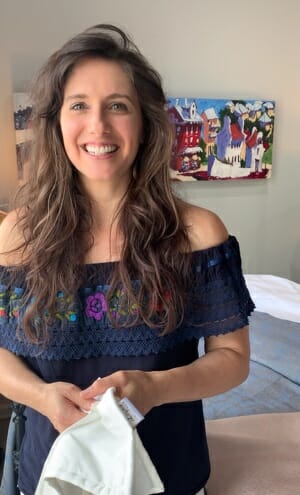
Course guide Karly Randolph Pitman
Do you feel moved to join us?
If you feel led to join us, and if this course feels like a good fit for your needs, I'd love to have you. And if you have any questions, please reach out. I want you to get the help you need, whether it's with us or with someone else.
You can also read feedback from our students. Below are examples of what past students have shared with us. While your experience will be unique to you, these stories can give you an idea about what to expect.
What past students have said
"[The course] has worked in me to lower defenses, shame and alarm...I also have approached limits with food in a much healthier way without trying or forcing...it seems like an inner shift has taken place outside of conscious effort on my part!
"The beauty of working with Karly for me has been the experience of being accepted and supported unconditionally in the most nurturing way I have ever experienced. "[It creates the]...most incredible experience with every course I have taken with her -- 4 in total now!"
- Mary, New York, USA
"The specific focus on listening was incredibly welcome and nurtured my growth and ability to more tenderly attune to, give voice to and care for different parts of myself....Karly’s warmth and incredible insight, compassion and kindness is unbelievably nurturing.
I am more consistently able to come back to listening to the more challenging, tender parts of myself. Imperfect but growing. I am more able to witness and come alongside the parts I dislike or reject and shame. I feel more connected and open to limits around eating. Slowly, slowly, gently, gently. I am less likely to ‘give up’ and dive headlong into food if my eating is imperfect or I binge. Remarkable!
No teacher or class materials have ever had the degree of impact, brought the depth of understanding and self compassion and the hope for and belief in growth that Karly has given. I am immensely grateful. - Jo, Sydney, Australia
"This course came around at a pivotal time in my life and was one factor in what turned out to be a huge shift for me. I am finding the willingness to incorporate the materials and meditations into the loop of self-talk that goes around and around in my head. The course helped to hold open the space so that I could make a much needed change.... exactly what my heart needed to hear. The course helped me to learn how and what to say to my heart to support and heal it.
I liked the variety of the components – some longer, some shorter, some listening, some more active (art). It was easier to accomplish each component – if I only had a short time, I could listen to a short one. And I always feel held, supported and informed because [the Growing Humankindness team] are so helpful, organized and kind. It really helped me to feel seen and heard and validated!"
- ER, United States
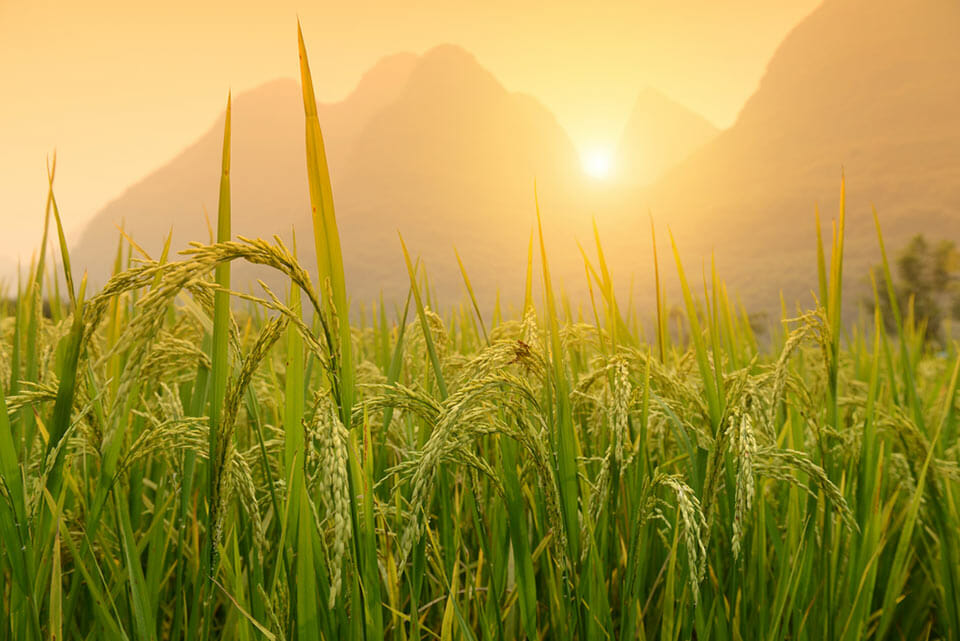
A space to trust your process
In addition to the group support, nurturing, and teachings that help you make sense of your relationship with food, this course also encourages you to trust your process.
In our classes, you won't find pressure to 'fix,' meet a certain expectation, achieve a certain result, or to force healing. There is not a timeline or pressure to stop overeating - rather we focus on nurturing the conditions that help you soften and let go.
You may discover that this approach softens the part of you that feels responsible for making healing happen.
Of course, changes can and do happen! But changes are much more likely to occur when we approach our relationship with food with reverence, respect ("to look again") and trust. Past students have shared how feeling held, witnessed, and accepted just as they are was a gift to their being, how safe they felt in the group.
It's a beautiful irony that this acceptance is often what we need in order to feel safe to grow.
Healing is a beautiful Mystery, and we invite you to lean into Her. It's a relief to soften the urgency to 'fix' yourself and the pressure of feeling like it's all on your shoulders.
So you'll prepare good soil. You may put up some fences. We'll water your seeds of growth. And as Martin Prechtel said, "the holy in your seeds will direct."
Frequently Asked Questions
What if I'm unhappy with the course? What's your refund policy?
We're really proud of our offerings and stand behind them, and we also want you to find the right fit for your needs. If you have any questions if this is the right course for you, please reach out! We're happy to help.
If the class isn't for you, we offer a full refund prior to Tuesday, July 16th, the start of the class. After this date, we offer a refund through Monday, July 222nd minus a $25 administrative fee. After this time period, we don't offer refunds or exchanges. To ask for a refund, please contact us by email or phone. And if you have particular extenuating circumstances that are outside the scope of our refund policy, please reach out.
What if I get behind? Can I access the course materials after the class ends?
Sometimes we get behind or can't attend all the live calls. After the class ends, you'll continue to have unlimited online access to the course materials in our online campus, the Growing Humankindness Mighty Network. Mighty Networks also has a handy free app that you can download on your phone or other device.
I've taken other courses with Karly. How is this course different?
In all our courses, you'll find common threads like fostering compassion, relating to rather than cutting out various parts of ourselves, and approaching ourselves with reverence. What makes this course different is it's specifically focused on these seven areas where most people tend to get stuck with food. This course also has playful creative exercises that people have found to be powerfully healing - and a lot of fun!
How do I know if this course is the right fit for me?
If you're willing to reflect upon your experience, feel into your true needs, and make time for the exercises and webinars, you'll do well. It's helpful if you're open to meditation practices and if you're comfortable in an online environment. Lastly, this course is especially designed for highly sensitive people and offers gentle ways of supporting growth and change.
You can learn more about our approach here.
Do I have to be creative or be an artist to take this class?
No artistic talent or skill is required, just a desire to play and explore.
How do I know if this course is the right fit for me?
If you're willing to reflect upon your experience, feel into your true needs, and make time for the exercises and webinars, you'll do well. It's helpful if you're open to meditation practices, if you're comfortable in an online environment, and if you’re willing to connect with the group. Lastly, this course is especially designed for highly sensitive people and offers gentle ways of supporting growth and change.
How do I know if this course is NOT for me? Can this course heal trauma?
Healing trauma is beautiful and holy work. It can also be complex and often requires time, patience, and the skill of a trauma therapist. While this course offers support and nourishment to deepen your relationship with yourself, and while many people receive healing from it, I want to be clear that we're not trained therapists. Therapy is wonderful, but this course isn't a replacement for therapy or designed to heal trauma. For help with trauma, please see this page here.
